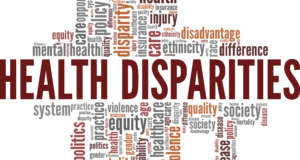
More Than a Standard: DEI Woven Throughout Updated CMSA SoP
BY ALAN BOARDMAN, LMSW
The CMSA Standards of Practice (SOP) is our professional creed. The SOP expresses our collective values, goals and criteria through a unifying set of principles. Dr. Gerri Lamb states that the SOP provides a “blueprint for excellence” in case management (1). Having such a document is definitive for a profession that is composed of a variety of licensures practicing in a broad array of settings across the continuum of care. Our SOP has been revised in 2022, and it is now in its fifth edition, reflecting the evolution of the case management profession and the increasingly complex environment in which it operates. This latest edition was “written with the future in mind” (2). A salient feature of the fifth edition is the emphasis on the tenets of diversity, equity and inclusion. While not new to the field of case management, diversity, equity and inclusion principles are important to highlight in the wake of the COVID-19 pandemic, which exposed glaring inequities in health outcomes. Our professional standards give case managers direction to improve health equity in profound and meaningful ways. Case managers can help shape health policy, research and development protocols, data analysis, technological applications and quality assurance metrics to improve diversity, equity and inclusion. Fidelity to the CMSA SOP will increase health equity in the healthcare service delivery ecosystem.
The Centers for Disease Control and Prevention (CDC) define health equity as ”the state in which everyone has a fair and just opportunity to attain their highest level of health” (3). What could be more aligned with the mission of case management? Unfortunately, the grim realities of the COVID-19 pandemic underscore that more work is needed to facilitate equal opportunities for health and wellness. In the United States, hospitalization and mortality rates confirm that COVID-19 impacted Blacks, Hispanic/Latinx and Native Americans disproportionately. Social determinants of health factors made these populations more susceptible to the transmission of the virus and more vulnerable to its lethality. Crowded housing conditions and densely populated neighborhoods made social distancing difficult. Low-income wage workers and front-line essential staff were often unable to work from home. Inadequate access to primary care, urgent care and pharmacies in underserved communities delayed the delivery of lifesaving prescriptions, especially for the uninsured and the underinsured. Furthermore, inadequate access to healthcare was compounded by language barriers, cultural distrust of the healthcare delivery system, transportation barriers and the threat of poverty due to lost wages (4).
Dr. Marcella Nunez-Smith, COVID Health Equity Chair, U.S. Department of Health and Human Services, has stated:
“We must strive toward a new post-pandemic reality—and not return to our ‘normal’ policies and practices –– in housing, nutrition, education, healthcare, employment, and beyond–– those have failed too many, and have made minoritized, marginalized communities the most vulnerable to the tragedies of COVID-19” (5).
The role of the professional case manager is that of advocate: “Advocacy is used to coordinate the influential factors that affect the patient or a group of patients’ ability to achieve their optimum state of health” (6). Health disparities are preventable, and professional case managers have the opportunity, if not an ethical mandate, to address the social determinants of health that undermine health equity. However, we must establish trust first.
Every case manager knows that very little can be achieved if a foundation of trust is not cultivated with our clients. Similarly, the effectiveness of the healthcare delivery system hinges on the trust forged between patient and provider too. Unfortunately, there is great variance in consumers’ experience of care across racial and ethnic lines, and this disparity hinders engagement with providers. The Deloitte Center for Health Solutions conducted research using focus groups with 525 Black, Asian, Hispanic/Latinx and Native American individuals to explore their treatment experiences (7). The findings are illuminating:
- 55% reported a negative experience that damaged their trust in the provider.
- 36% became avoidant of care because they disliked how they were treated by the provider or their staff.
- Four out of five respondents said that they would not return to the provider after a negative experience, and there was nothing the provider could do to make it up to them.
Deloitte found that providers who reflect the racial and ethnic identity of their patients are more successful in fostering trust. In contrast, providers lacking cultural competence and empathy were mistrusted, and their patients did not feel heard and properly understood. A Hispanic/Latino male, aged 55-64, who participated in the study said, “Most of the time, I don’t feel like the doctor is really paying attention to what my condition is. They just want to move you through the system as fast as they can for more profit.” More than half of the participants in Deloitte’s study indicated the importance of having providers who represent their communities and life experiences because such providers have a better understanding of their symptoms and do not make general assumptions. Deloitte concluded, “Consumers seek providers who have empathy. They want to feel safe and understood, not judged.”
Deloitte also found that consumers want healthcare providers to offer a platform for their concerns and grievances to be acknowledged, validated and addressed. This finding has great relevance for case managers. In our role as advocates, we have a responsibility to promote inclusion that ensures everyone feels welcomed and respected. We must serve as allies to support our clients and amplify their concerns and grievances so that they are remedied. We can also prepare and train our clients to become better advocates for themselves. Furthermore, we must look inward and assess our own unconscious biases through training and honest introspection to eliminate any preconceptions. Case managers can be agents of change so our clients can have reparative experiences with the healthcare delivery system. Over time, an accumulation of positive experiences can build a sense of trust that promotes better engagement with providers to improve health outcomes.
There are many other ways that case managers can serve as advocates to increase health equity, and some of them are more systemic in nature. To quote Dr. Nunez-Smith again:
“What this pandemic has made abundantly clear is that social policy is health policy. We need a ‘health in all policies’ strategy as we think about investments now that will reap benefit over generations. This is our work” (8).
Some important components to consider in eliminating bias pertain to data. The collection of racial and ethnic data, and the use and misuse of this data, are of critical concern. We must ensure that clinical assessments and other data collection tools are culturally sensitive. Additionally, clinical algorithms and predictive modeling used to identify candidates for case management services must be free from bias. As case management leaders, we need to ensure that these algorithms don’t use inadequate or flawed data sets. For example, family medical history is a better indicator of healthcare vulnerabilities, and specific social determinants of health like housing conditions, food insecurity and transportation needs are better predictors of risk than race or ethnicity. Clinical algorithms, predictive modeling and assessment and screening tools should be audited to ensure that the genuine drivers of health outcomes are captured and used appropriately to identify candidates and stratify risk for case management services (9).
The CMSA SOP has a future orientation, and technology offers innovative and exciting opportunities to extend the case managers’ reach through telecommunications, digital applications, patient portals and telehealth services. However, it is incumbent upon us as professional case managers to support our clients in accessing and using these technologies, referred to as “e-health.” We must ensure that e-health does not exacerbate existing health disparities by favoring those who have better access to emerging technology. In addition to facilitating access to computers, cell phones, the internet and sufficient data capacity, we must also ensure that the content of e-health communications are culturally sensitive and linguistically appropriate (10). The promise of e-health opportunities should be used to alleviate health disparities and not create a “digital divide.”
The socio-political environment in which professional case managers work grows more complicated with every passing year. The COVID-19 pandemic cast a bright light on some harsh realities about healthcare inequities that are impossible to ignore. Case managers serving individuals across the continuum of care are well positioned to address the social determinants of health and other factors that affect health equity. Using the revised SOP as our guide, we can have a profound impact at both individual and systemic levels. Indeed, case managers can provide informed leadership on matters pertaining to healthcare policy, research and development, data analysis and the application of technology to improve treatment quality and health outcomes. It is through our role as advocates that we can help shape a healthcare delivery system that is fairer and more just. Our SOP will always evolve to address new challenges, but there are core principles that will remain constant. Professional case managers are dedicated advocates who aim to holistically meet the needs of the clients with compassion and without bias.
References
- Case Management Society of America: Standards of Practice for Case Management, rev. 2022, p. 5.
- Ibid, p. 10.
- https://www.cdc.gov/healthequity/whatis/index.html.
- Turner-Musa, J.; Ajayi, O.; Kemp, L.: Examining Social Determinants of Health, Stigma, and COVID-19 Disparities, MDPI, 2020.
- Dr. Marcella Nunez-Smith, COVID Health Equity Chair, U.S. Dept. of Health and Human Services, Aug. 4, 2021, Readout of the Sixth Covid-19 Health Equity Task Force Meeting.
- Case Management Society of America: Standards of Practice for Case Management, rev. 2022, p. 18.
- Read, L.; Nelson, H.; Korenda, L.; “Rebuilding Trust in Health Care: What Do Consumers Want-And Need-Organization To Do?”, The Deloitte Center for Health Solutions, 2021.
- Dr. Marcella Nunez-Smith, COVID Health Equity Chair, U.S. Dept. of Health and Human Services, Aug. 4, 2021, Readout of the Sixth Covid-19 Health Equity Task Force Meeting.
- “Rethinking when and how to use race appropriately in care delivery: Bias in care delivery can be addressed through a system-level approach to data, algorithms, and technologies”; Deloitte Health Equity Institute, 2022.
- Viswanath K, Kreuter MW. Health disparities, communication inequalities, and eHealth. Am J Prev Med. 2007 May;32(5 Suppl):S131-3. doi: 10.1016/j.amepre.2007.02.012. PMID: 17466818; PMCID: PMC2043145.

Alan Boardman, LMSW, is a Licensed Social Worker with more than 27 years of experience. His career has focused on serving individuals living with chronic behavioral health conditions, serious mental illness and complex, co-occurring conditions. Alan is currently serving his second term as a director on the CMSA Foundation Board, is a member of the CMSA Foundation Advisory Committee, the CMSA Finance Committee, participated on the Standards of Care Committee and has completed CMSA’s Integrated Case Management program.
Alan is currently the director of clinical program management in behavioral health at a large New York City based health plan. He is responsible for the development and management of its comprehensive behavioral health quality management plan and all related strategies. Additionally, he implements and oversees innovative clinical programs that employ integrated case management models to improve treatment outcomes.
Image credit: ISTOCK.COM/DZMITRY DZEMIDOVICH




